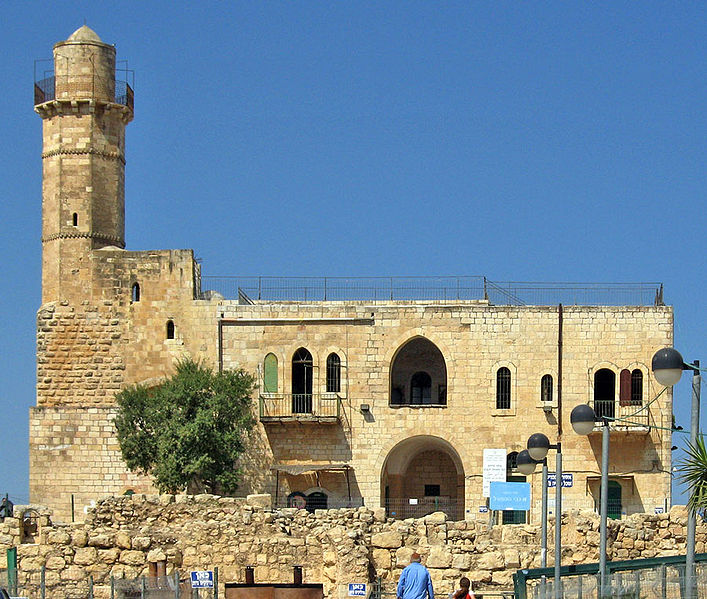2 May. Joshua defeats five Amorite kings
“At this time, Adoni-Zedek, king of Jerusalem heard that Joshua had defeated Ai and completely destroyed it, as he had also done to Jericho and its king. The king also learned that the Gibeonites had made a peace treaty with Israel and that they lived nearby.”
“Adoni-Zedek and his people were very afraid because of this. Gibeon was not a little town like Ai; it was a large city, as big as a city that had a king, and all its men were good fighters. So Adoni-Zedek, king of Jerusalem sent a message to Hoham king of Hebron, Piram king of Jarmuth, Japhia king of Lachish and Debir king of Eglon.”
“He begged them, ‘Come with me and help me attack Gibeon, which has made a peace agreement with Joshua and the Israelites.’ Then these five Amorite kings – the kings of Jerusalem, Hebron, Jarmuth, Lachish and Eglon – gathered their armies, went to Gibeon, surrounded it and attacked it.”
“The Gibeonites sent this message to Joshua in his camp at Gilgal. ‘Don’t let us, your servants, be destroyed. Come quickly and help us! Save us! All the Amorite kings from the mountains have joined their armies and are fighting against us.’”
“So Joshua marched out of Gilgal with his whole army, including his best fighting men. The LORD said to Joshua, ‘Don’t be afraid of these armies, because I will hand them over to you. None of them will be able to stand against you.’”
“Joshua and his army marched all night from Gilgal for a surprise attack. The LORD confused those armies when Israel attacked, so Israel destroyed them in a great victory at Gibeon. They chased them along the road going up to Beth Horon and killed men all the way to Azekah and Makkedah.”
“As they chased the enemy down the Beth Horon Pass to Azekah, the LORD threw large hailstones on them from the sky and killed them. More people were killed by the hailstones than by the Israelites’ swords.”
“On the day that the LORD gave up the Amorites to the Israelites, Joshua stood before all the people of Israel and said to the LORD: ‘Sun, stand still over Gibeon. Moon, stand still over the Valley of Aijalon.’ So the sun stood still, and the moon stopped, until the people defeated their enemies...”
“During the fight the five kings ran away and hid in a cave near Makkedah, but someone found them hiding … and told Joshua… So Joshua’s men brought the five kings out of the cave.”
“Joshua said to his men, ‘Be strong and brave! Don’t be afraid, because I will show you what the LORD will do to the enemies you will fight in the future.’ Then Joshua killed the five kings and hung their bodies on five trees, where he left them until evening.”
“At sunset Joshua told his men to take the bodies down from the trees. Then they threw them into the same cave where they had been hiding and covered the opening of the cave with large rocks, which are still there today.”
“That day Joshua defeated Makkedah. He killed the king and completely destroyed all the people in that city as an offering to the LORD; no one was left alive. He did the same thing to the king of Makkedah that he had done to the king of Jericho.”
(Joshua 10:1-28)

After it was subjected to the Israelites, Gibeon was besieged by the King of Jerusalem and four other Amorite kings of Canaan. Joshua marched all night from the camp at Gilgal to Gibeon, made a surprise attack to defeat the Amorite kings, and pursued them through the mountain pass at Beth Horon (meaning ‘House of Horon’ - a Canaanite god of the underworld) and south to Azekah and Makkedah (see 6 on the map on 23 April).
The sun was said to stand still all day on this memorable occasion (see Joshua 10:12-14).
Gibeon then became one of the cities of the tribe of Benjamin allocated to the Levites who performed a priestly function for the people of Israel (see Joshua 21:17).
After David became King of Judah in 1011 BC, his soldiers, under the command of Joab, defeated the forces of Saul’s son Ishbosheth (who had been proclaimed King of Israel by Saul’s general, Abner) at the Pool of Gibeon (see 2 Samuel 2:8-17). It was here, also, that David defeated the Philistines (see 2 Samuel 5:25).
Still visible today at Al Jib is this huge well – the Pool of Gibeon - nearly 39 feet / 12 m in diameter and over 35 feet / 10 m deep. The well has a spiral staircase cut into the walls, which continues downwards to a tunnel leading to an underground reservoir 78 feet / 24 m below the city. A later tunnel, giving access to the underground water cistern from the base of the hill, is still in use today.
The photo (by Tamarah) shows Samuel's Tomb (Nebi Samwil) at Mizpah, near Gibeon.
You can discover more about Gibeon @ https://www.thebiblejourney.org/biblejourney2/27-the-israelites-move-into-canaan/joshua-is-deceived-by-the-hivites/
